Samsung's teaser video reveals little about the Galaxy S8
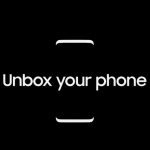
Not content with showering us with tablets in the form of the Galaxy Book and the Galaxy Tab S3, Samsung also used yesterday's announcements at MWC 2017 to tease us about the keenly awaited Galaxy S8 smartphone.
At the event in Barcelona we were treated to teaser video which questions whether we know what a smartphone looks like. While we don’t get to see the Galaxy S8 (or, indeed, the Galaxy S8+) in the video, we do learn that the phone will be unveiled on 29 March, and the stark graphics hint at elements of the design -- which we largely know about from leaks already.
Samsung Galaxy Tab S3 is the first interesting Android tablet in ages
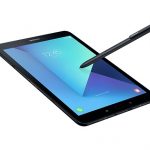
At MWC 2017 we were treated to the arrival of the Samsung Galaxy Book, but this was not the only announcement from the company still waiting to launch the Galaxy S8. Continuing to add to its Galaxy range, Samsung also officially unveiled the Galaxy Tab S3 -- and it looks pretty special.
As the 9.7-inch tablet comes equipped with an S Pen, it is somewhat reminiscent of a large Galaxy Note. The high-quality glass and metal build puts the tablet on a par with Apple's iPad, and audiophiles will be pleased to see the inclusion of quad-stereo speakers from AKG. But this Android 7 tablet has a lot more to offer.
How to block the installation of non-Windows Store apps in Windows 10
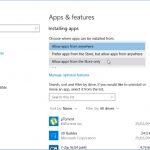
If you want to keep your computer secure and clutter-free, it's important to keep an eye on what gets installed. This is fairly easy if you're the only person to use your computer, but less so if you share it with kids or other members of your household. To make it easier to lock down Windows 10 Creators Update, you can block the installation of all software that doesn't come from the Windows Store.
Why would you want to do this? Well, blocking non-Windows Store software means blocking traditional programs, and these are the ones that are more liable to be malicious or pose a security threat. Apps that have made it into the Windows Store have -- in theory -- been vetted to some degree, and are less able to wreak havoc. Here's what you need to do.
Samsung partners with Microsoft to create the Windows 10-powered Galaxy Book
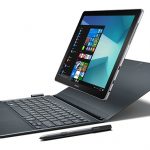
While attendees and fans of MWC 2017 were hoping for at least a little news about the Samsung Galaxy S8, Samsung forwent phones completely and instead offered up a pair of tablets: the Galaxy Tab S3, and the Galaxy Book.
The Galaxy Book is the fruit of an "expanded strategic partnership" between Samsung and Microsoft, and is described as a "premium 2-in-1 designed with the mobile enterprise customer in mind". Available in 10.6" and 12" models, there are natural comparisons to draw with both the Surface Pro 4 and Surface Book.
Nokia reimagines the classic 3310 for 2017, complete with Snake
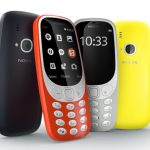
No, you have not just stepped back in time 20 years; the Nokia 3310 is back. The phone that was more likely to break the sidewalk when dropped rather than suffer a crack itself has today been relaunched by HMD Global, who has a license for the Nokia brand.
While not an exact replica of the phone that was first seen back in the year 2000 (a phone could not get away with being quite so chunky these days!), it's a modern take on a classic device, and it's sure to win over many people. Snake is present for whiling away a little time, but what else does the Nokia 3310 have to offer?
MWC 2017: Withings products to be rebranded as Nokia devices
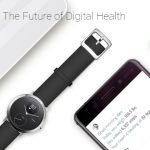
Last year, Nokia decided to splash a bit of cash and bought Withings. Today at MWC 2017 in Barcelona, it was revealed that existing Withings health and fitness products will be rebranded as Nokia devices this year.
Starting "early summer 2017", Withings' range of smartwatches, digital scales, and other smart devices will come under the Nokia brand. Withings also announced changes to its Health Mate app, and its plans to share user data with "caregivers" through its Patient Care solution -- moves that sees the company take Apple square on.
MWC 2017: Huawei unveils P10 and P10 Plus
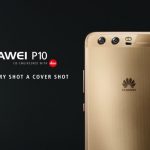
Today at MWC 2017, Huawei lifted the lid on its new P10 range. As with their predecessors, the Huawei P10 and Huawei P10 Plus have a strong focus on photography, with the Leica brand being used as a draw.
As is the norm these days, there are no huge surprises to be found here, with the latest flagships being really little more than an evolution of last year's models -- not that that's a bad thing of course. In addition to the cameras, standout features for this year's handsets include a serious boost to battery life, and a front-mounted (hooray!) fingerprint sensor, complete with gesture support.
Google Assistant is coming to all smartphones with Android 6.0 Marshmallow and up
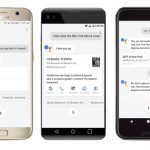
If you like the idea of Google Assistant but didn’t like the fact that it was tied to the Pixel range, there's some good news. Google has announced that the handy helper is making its way to all Android 6.0 Marshmallow and Android 7.0 Nougat smartphones.
The roll out starts this week, and brings Siri- and Cortana-like voice control to millions of Android users. Earlier today at MWC 2017 in Barcelona, the newly-announced LG G6 became the first non-Pixel device to offer Google Assistant, and Google now says that the feature is coming to "eligible Android phones running Nougat and Marshmallow with Google Play Services".
LG G6 is a flagship smartphone with a 5.7-inch 18:9 display and impressive specs
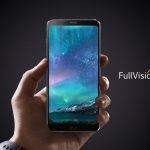
If there is anything to be garnered from LG's unveiling of the G6 at MWC 2017 today, it is that the company learned a lot from last year's G5. While the G5 was a modular affair, the LG G6 gets back to basics and concentrates on being a decent flagship handset with a few interesting quirks.
In terms of specs, the G6 may not blow you away, but it still succeeds in standing out from the crowd, thanks in part to its display. The 5.7-inch screen has an aspect ratio of 18:9 (a resolution of 2880 x 1440), and the tall device is IP68 rated for waterproofing. But what else does the LG G6 have to offer?
MWC 2017: Watch the Samsung Galaxy announcement here, live!
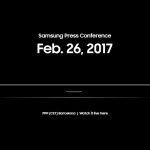
Mobile World Congress 2017 may not technically kick off until tomorrow, but lots of companies like to jump the gun so they can be the first to get their announcements out. In this group is Samsung, and later today the company is holding a press conference in Barcelona at which it will unveil the latest addition to the Galaxy range.
Of course, there has not been official word that it's the Samsung Galaxy S8 that will be announced, but there have been enough hints, rumors and leaks for this to be considered likely (even if Samsung has said the actual launch will come after MWC). If the rumors are to be believed, we may also see a Samsung Galaxy S8+, and the specs sound pretty special, and may be enough to help the company rebuild faith after the Note7 debacle. So, are we in line for the Galaxy S8, and/or an addition to the Galaxy Tab range?
Ad blocker Shine does a complete u-turn... and rebrands as ad company Rainbow
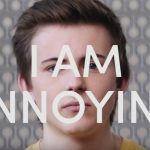
In a perfect example of poacher-turned-gamekeeper, Israeli company Shine -- known for producing ad blocking software -- has rebranded as Rainbow and will instead offer an advertising service. Rainbow will work primarily with telecoms companies, and will have a strong focus on targeted advertising.
The company says that it wants to provide "a better ad experience for consumers", having apparently decided that blocking ads was not working for everyone. Rainbow aims to win round consumers by providing an opt-in service that means people will see only advertisements that comply with industry standards and observe privacy rules.
Google releases details of unpatched Internet Explorer and Microsoft Edge vulnerability
Not content with publishing details of an unpatched Windows bug, Google has now gone public with a security vulnerability in both Microsoft Edge and Internet Explorer. Going under the description of "Type confusion in HandleColumnBreakOnColumnSpanningElement", the bug has the potential to allow an attacker to execute malicious code.
The vulnerability has been assigned the code CVE-2017-0037, and details of the flaw have been published under the terms of Google's Project Zero. Microsoft was notified about the problem 90 days ago, and as the company failed to patch it Google has made the problem public.
Google renames Messenger to Android Messages as the company pushes RCS
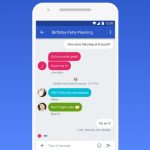
Just last week we were talking about Google's championing of RCS (Rich Communication Services), the successor to SMS. Now the company has renamed its Messenger app to Android Messages as it aims to become not just the default SMS app, but the default RCS app for Android users.
The name change also helps to better differentiate the app from others that had the same name -- such as Facebook Messenger, which is shortened to just Messenger on shortcuts. At the same time, the change is likely to cause a degree of confusion thanks to the sheer number of messaging apps Google now has.
Google has broken SHA-1 encryption
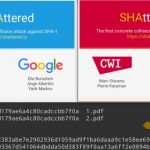
After two years of research, Google has shown that it has successfully broken SHA-1 encryption. The company is yet to release details of how it achieved the first SHA-1 "collision", but has released a proof of concept.
In keeping with its own disclosure policy, details of how the encryption was effectively broken will be released after 90 days. In the meantime, you can take a look at two specially-crafted PDF files that have identical SHA-1 hashes but different content (the definition of a collision).
Google and Jigsaw create Perspective technology to identify abusive comments

Any website that allows contributions from visitors -- whether it is a platform such as Twitter or a site that has a comments section -- has to contend with the problem of abuse, swearing and harassment. Manually keeping on top of this sort of content can be a hellish task, but Google and fellow Alphabet subsidiary Jigsaw have launched a new technology called Perspective to help automate things.
The technology uses machine learning to identify what are being called "toxic comments" (defined as "a rude, disrespectful, or unreasonable comment that is likely to make you leave a discussion") so they can be dealt with appropriately.
Sofia Elizabella's Bio
Sofia Wyciślik-Wilson is a queer, transgender journalist based in Poland. She has been writing about technology for more than two decades, and after years working for magazines, her writing moved online. She is fueled by literature, music, nature, and vegetables. You can find her on Bluesky and Mastodon. If you like what you read, you can Buy her a Coffee!
© 1998-2025 BetaNews, Inc. All Rights Reserved. Privacy Policy - Cookie Policy.
